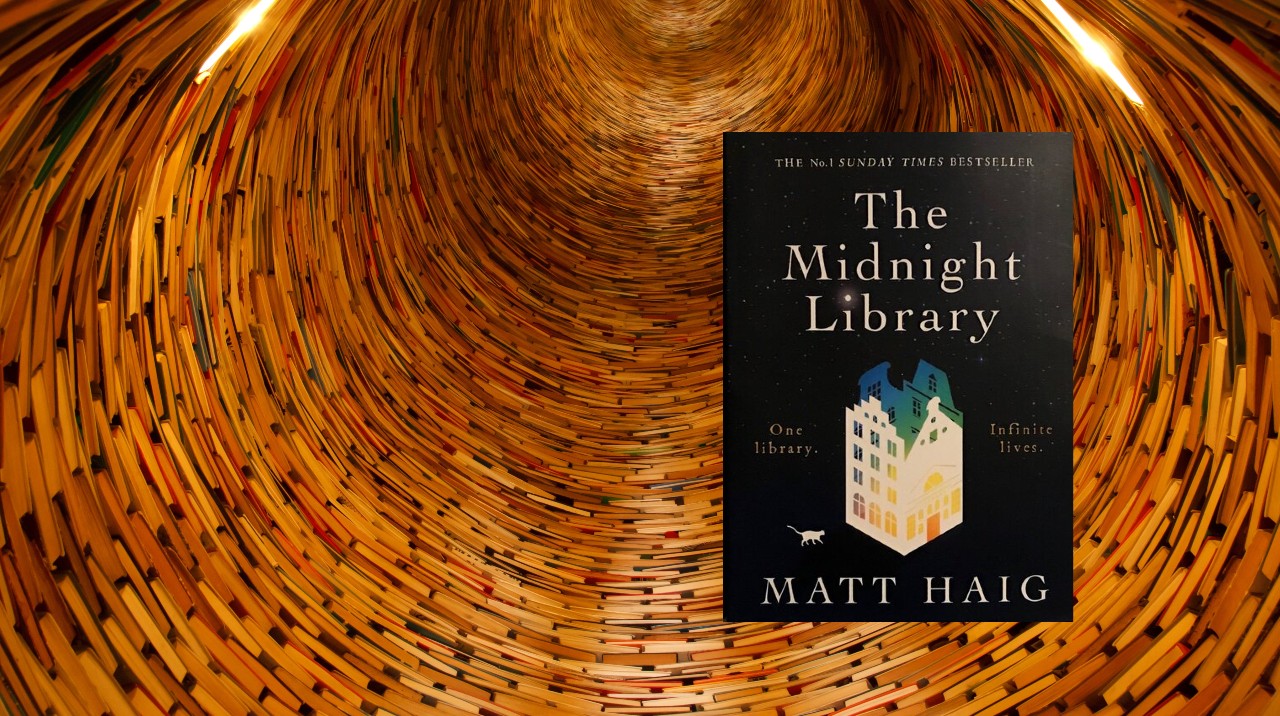How do we live without regrets? There are some who are able to draw a line under a decision and move on with life but for the rest of us, we live with those quiet voices that pop up when we’re feeling low.
“If only I’d taken that job when it was offered.”
“Life would be so much different if I’d said no.”
“I should have done more at the time.”
Learning to accept the choices we’ve made, appreciating what these choices give us and making the most of the life we have are themes of Matt Haig’s novel, The Midnight Library.
The Midnight Library is the story of Nora Seed. Nora has decided that life’s not worth living and has made the very life-changing decision to end it all. In a secular (and bookish) kind of an afterlife, Nora finds herself in The Midnight Library – a room chock-full with books of possibilities. These books each contain a possible life Nora could have lived – if she’d made different choices in her life.

The Midnight Library comes with its very own steward-of-wisdom, the kind librarian from Nora’s childhood, Mrs Elm. With Mrs Elm’s encouragement, Nora opens her big Book of Regrets – and discovers that by simply wishing a regret away, she is spirited to that version of her life where she chose differently. She gets to live the life where she chose to go on a date or follow a career path or do the opposite of the things that preceded all her “mistakes”.
I don’t think it’s a spoiler to say that life in these alternate-lives isn’t as expected. For what Nora may have perceived as a loss is balanced by all the things gained. It’s not as neat as a zero-sum game – but it illustrates that for every decision we make, there are infinite things we cannot control. And reminds us that we make our choices for a reason – sometimes due to the situation, other times based on what’s important at the time – even though the results may not be as expected.

I’m not sure anyone could read The Midnight Library and not wander down the path of reflecting on one’s own regrets. It’s a reminder too that regrets are the things we learn from – they are the decisions that have sent us on the road less travelled, challenged us to be very clear about what’s important, to stand in integrity. And that’s living.
The so-called ‘perfect life’ (with no bumps, no challenges, no deviations) isn’t really that perfect.
It’s hard to think that a book about a woman who decides to takes her own life could be described as sweet – but that’s what I thought after reading The Midnight Library. I felt a real tenderness for the story of Nora Seed. While a bit formulaic and predictable at times, I found The Midnight Library an enjoyable and thought-provoking read, and would recommend for anyone reflecting on life’s decisions.

